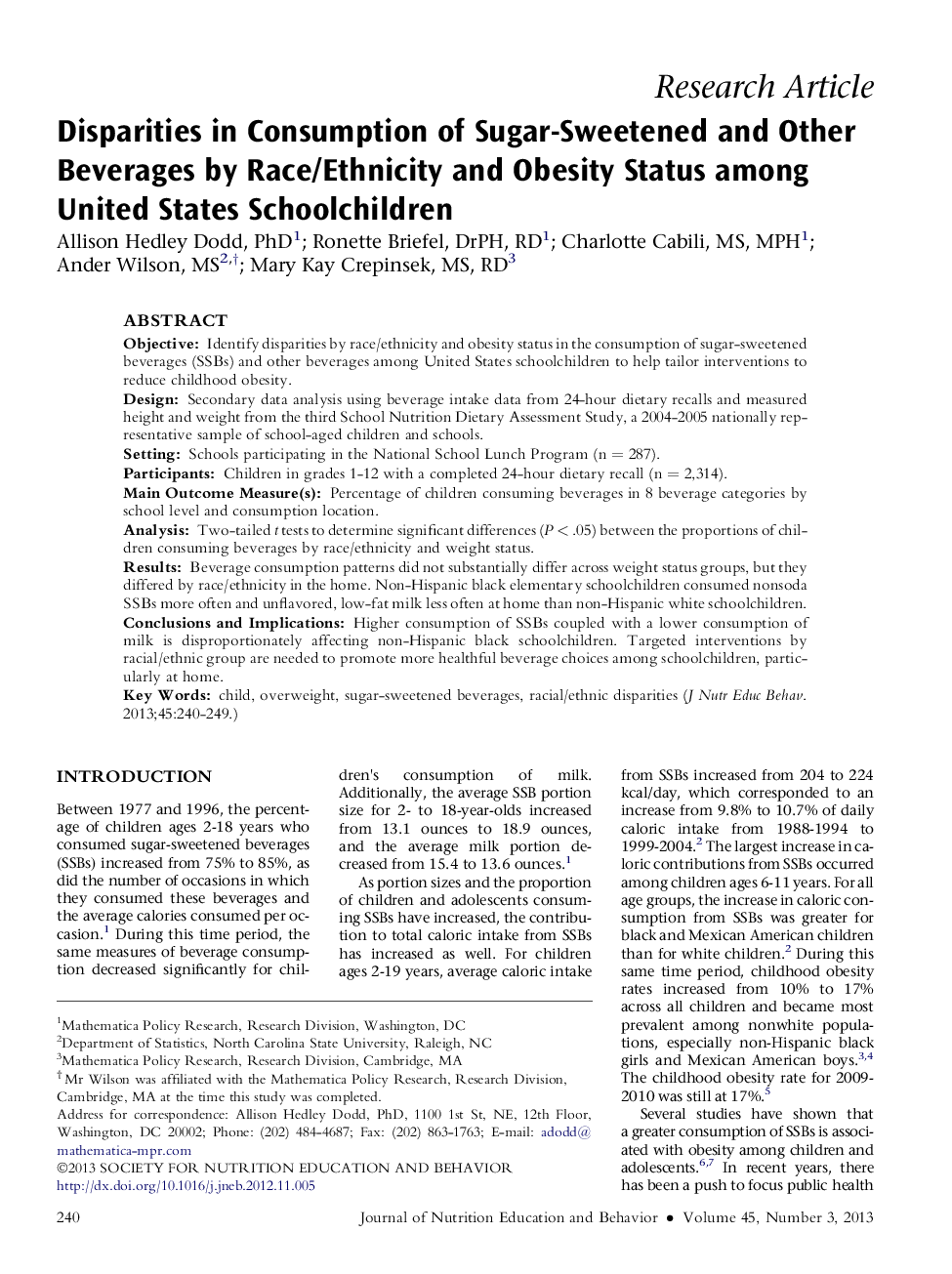| Article ID | Journal | Published Year | Pages | File Type |
|---|---|---|---|---|
| 361891 | Journal of Nutrition Education and Behavior | 2013 | 10 Pages |
ObjectiveIdentify disparities by race/ethnicity and obesity status in the consumption of sugar-sweetened beverages (SSBs) and other beverages among United States schoolchildren to help tailor interventions to reduce childhood obesity.DesignSecondary data analysis using beverage intake data from 24-hour dietary recalls and measured height and weight from the third School Nutrition Dietary Assessment Study, a 2004-2005 nationally representative sample of school-aged children and schools.SettingSchools participating in the National School Lunch Program (n = 287).ParticipantsChildren in grades 1-12 with a completed 24-hour dietary recall (n = 2,314).Main Outcome Measure(s)Percentage of children consuming beverages in 8 beverage categories by school level and consumption location.AnalysisTwo-tailed t tests to determine significant differences (P < .05) between the proportions of children consuming beverages by race/ethnicity and weight status.ResultsBeverage consumption patterns did not substantially differ across weight status groups, but they differed by race/ethnicity in the home. Non-Hispanic black elementary schoolchildren consumed nonsoda SSBs more often and unflavored, low-fat milk less often at home than non-Hispanic white schoolchildren.Conclusions and ImplicationsHigher consumption of SSBs coupled with a lower consumption of milk is disproportionately affecting non-Hispanic black schoolchildren. Targeted interventions by racial/ethnic group are needed to promote more healthful beverage choices among schoolchildren, particularly at home.
